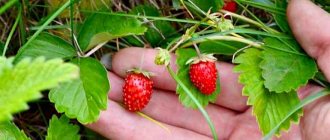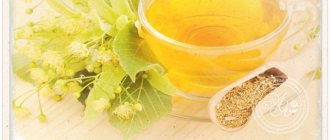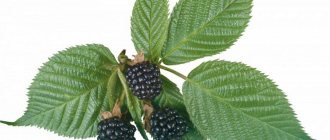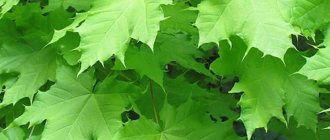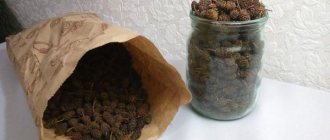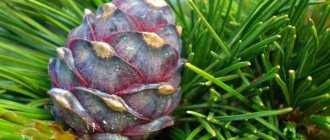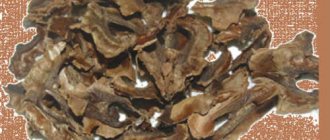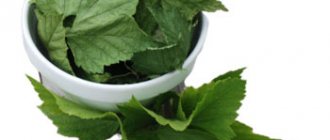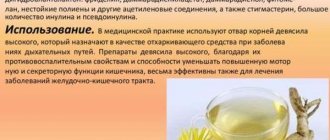The healing properties of raspberry branches strengthen the body and help cope with chronic diseases. They have become popular in folk medicine. They are used to prepare decoctions, infusions and teas.
It is better to collect raspberry branches before the plant blooms. Then they will be softer and juicier, and when brewed they will be able to release more nutrients.
More branches can be pruned after the first frost. As a rule, raspberry leaves remain on such branches, which should be preserved, since they also have healing properties and will make the infusion from the branches more aromatic and healthy. Branches can be collected from both garden and wild raspberries.
Benefits of raspberry branches
Salicylic acid in raspberry branches makes them useful for rheumatism and polyarthritis.1
Potassium in raspberry branches normalizes blood pressure, eliminates coronary heart disease and reduces the risk of cardiovascular diseases.2
Flavonoids and phenolic substances in the branches of the plant prevent the formation of blood clots, and coumarin strengthens the walls of blood vessels. Drinking an infusion of raspberry branches normalizes blood clotting and prevents atherosclerosis.3
Raspberry branches have expectorant, bactericidal and anti-inflammatory properties. They effectively cope with cough, runny nose, bronchitis, sore throat, laryngitis, tracheitis and pharyngitis.4
Brewed raspberry branches can be used as a remedy to improve digestion, eliminate colic, treat diarrhea and increased gas formation. This is possible thanks to antioxidants.5
Remedies from raspberry branches can be used as diuretics. They have diuretic properties and increase bile production. Raspberry branches cleanse the body of toxins.6
Tea made from raspberry branches is beneficial for women. It helps regulate menstrual cycles, relieves premenstrual symptoms and replenishes iron deficiency, which is common in women with heavy menstrual cycles.
Drinking tea from raspberry branches is recommended during pregnancy. Substances present in raspberry branches make the birth canal more elastic and help avoid ruptures during childbirth, and also tone and tighten the muscles in the pelvic area. In addition, products based on raspberry branches eliminate nausea and vomiting.7
The antioxidants, vitamins A, E and C in raspberry branches make them a natural skin care product that can relieve irritation, improve elasticity and moisturize the skin. They are used in the treatment of inflammation, eczema and psoriasis.8
Flavonoids and tannins protect the body's cells from damage, and ellagic acids promote the self-destruction of cancer cells. All of these substances are contained in raspberry branches, so they can be considered a preventive agent for the fight against cancer.9
Raspberry branches strengthen the immune system and help get rid of colds, flu and ARVI.
Raspberry branches, medicinal properties
In the article about raspberries, I dwelt in detail on the medicinal properties of berries and raspberry leaves. What are the benefits of raspberry branches? Due to the content of salicylic acid, they have analgesic, bactericidal, and diaphoretic properties. And the presence of coumarin in their composition helps strengthen blood vessels, prevent the development of atherosclerosis, and normalize blood clotting. So raspberry branches have no less beneficial medicinal properties than berries and leaves.
Raspberry branches are used in the form of teas (infusions) or decoctions that have a beautiful color and amazing aroma. They are used:
- To strengthen the immune system, prevent colds during the cold season, treat coughs due to colds and flu, bronchitis (drink warm tea or decoction 1/2 cup before meals).
- For laryngitis, sore throat, stomatitis (2 tablespoons of chopped twigs, brew 1 cup of boiling water, leave for 1 hour, gargle every hour).
- For heartburn, abdominal pain, internal bleeding (prepare a medicinal infusion: brew chopped stems with boiling water, leave for about an hour, take 1 glass 3-4 times a day).
- Against skin diseases, hemorrhoids (the branches are boiled over low heat until the broth turns reddish - about 1 hour, consume a glass three times a day).
Raspberry branches for coughs and colds
- for cough caused by a cold , it is recommended to take a decoction of raspberry stems;
- for a cold accompanied by a high temperature , you should take a decoction of raspberry branches as an antipyretic;
- cough in asthma can be eliminated with any remedy based on raspberry branches;
- for pain and sore throat, take brewed raspberry branches;
- strengthen the immune system and protect against influenza viruses .
Recipes from raspberry branches
You can add mint, lemon balm or honey to any recipe. This will increase beneficial properties.
Raspberry branch tea
To prepare tea from raspberry branches, you need:
- Chop the branches.
- Place in a saucepan and add water. Bring to a boil and cook for 20 minutes.
- Remove from heat, cover and leave for 6 hours.
- Strain the resulting liquid and consume within 24 hours.
Decoction of raspberry branches
A decoction of raspberry branches for coughs is prepared as follows:
- Place the washed and chopped branches in a saucepan.
- Boil in a small amount of liquid for 10 minutes.
- Leave for half an hour and drink three times a day before meals.
Infusion of raspberry branches
An infusion of raspberry branches helps with heartburn and improves digestion.
- Pour boiling water over freshly cut or dried branches.
- Close the container and leave for an hour.
- Drink a glass of the prepared infusion three times a day.
Raspberry branches for colds
Raspberry branches for colds are brewed as follows:
- Pour boiling water over the branches along with the leaves remaining on them, wrap them up and leave for 10-15 minutes.
- Strain the infusion and add honey, lemon or fresh raspberries to it. This will enhance the effect of the finished decoction.
You can add mint leaves to the decoction of raspberry branches, which was previously infused for half an hour. This will make it not only restorative, but also calming. And ginger added to raspberry broth will help you cope with a cold faster.
Raspberries for coughs in children: how to brew sprigs
Raspberries are a bright, sweet berry, loved by many fresh, in baked goods, in various desserts, and in the form of jam. And in addition to taste, it has a lot of healing properties - for example, it helps cure coughs. More details about this later in the article.
Beneficial properties of raspberries for coughs in children and adults
A cold, including one accompanied by a cough, occurs against a background of weakened immunity and a lack of vitamins and minerals in the body. In simple words, coughing is one of the protective mechanisms of the respiratory system and a way to get rid of the accumulation of microbes (sputum) that makes breathing difficult.
To facilitate the removal of mucus from the bronchi and lungs, and to get rid of a sore throat, doctors recommend warm, generous drinks for both children and adults. Raspberry tea is perfect for this use.
- Thanks to its rich chemical composition, this aromatic berry has many beneficial properties:
- vitamins A and C protect mucous membranes and help the body produce antibodies;
- tannins have anti-inflammatory and bactericidal effects;
- organic acids act as antioxidants, stimulate the regeneration of cells of the defense system, and exhibit antiseptic and diaphoretic properties;
- salicylic acid is an excellent antipyretic;
- Vitamin and mineral composition strengthens the immune system.
Important! The mild action of raspberries will help a child with nasal congestion without irritating his mucous membrane, unlike aggressive vasoconstrictors.
Popular traditional medicine recipes
Since ancient times, in folk medicine, all parts of the raspberry bush, even the root shoots, have been used for treatment.
Berry tea
Aromatic tea is more pleasant to drink than a bitter mixture, and for children, to make the drink even tastier and healthier, you can add honey to it. There are 2 popular ways to prepare this tea:
- From dried berries. Dry fruits in the amount of 1 tbsp. Place the spoons in a thermos and pour 200 ml of hot boiled water. Leave for 15–20 minutes. Drink a warm drink 2-3 times a day after meals.
- Grind fresh berries For medicinal purposes, add to regular tea or boiled water. Drink after meals about 3 times a day.
From leaves
An infusion of raspberry leaves effectively helps children with prolonged fever. To relieve it, you need to drink this infusion up to 5 times a day.
Preparation of the remedy:
- Place dry leaves (1 tablespoon) in a saucepan and pour 200 ml of boiling water.
- Keep in a water bath for 15 minutes.
- Leave for 1 hour.
- Drink 0.5 cups at a time.
Branch decoction
In severe cases of the disease, it is advisable to brew a drink from raspberry branches with flowers. This decoction helps to cope with a cough and reduce the temperature, and promotes the removal of sputum.
Recipe:
- Pour boiling water over dry raw materials at the rate of 2 teaspoons / 200 ml of water.
- Leave for 20 minutes.
- Drink warm about 3 times a day, with the obligatory addition of lemon and honey - this will enhance the effect of the drug.
For throat infections (pharyngitis, laryngitis), an infusion of branches is useful as a gargle. To prepare the product 2 tbsp. spoons of dry crushed stems, pour 200 ml of water (boiling water) and leave for about 45 minutes. Strain the infusion and gargle 3-5 times a day.
Raspberry jam: how to use
Raspberry jam is in almost every pantry or cellar. It’s easy to make tasty and healthy tea from it: you just need to add 1-2 teaspoons of jam to a glass of boiled hot water and stir. A drink made from jam is given to children and adults at night, after which they are wrapped in a warm blanket.
If the cough is painful and dry, then the jam should be added to a decoction of black elderberry, coltsfoot or other medicinal plant with expectorant properties.
Raspberry roots for coughs, acute respiratory infections and acute respiratory viral infections: how to infuse
To prepare this remedy, raspberry roots need to be disassembled into fibers and a decoction is made in a ratio of 1:20 with water. Cook the mixture over low heat for about 45 minutes and then leave for 2 hours. To add flavor to the drink, you can add lemon, and to enhance the healing effect, you can add honey.
Before drinking, the infusion should be strained. The drink is not stored for a long time - no more than 2 days in a cool place. You should drink it instead of tea until the condition improves.
Antipyretic raspberry tea
To urgently reduce the temperature without the use of pharmacological drugs, use steeply brewed, rich berry tea. To do this, approximately 30 g of berries (can be frozen) need to be poured with 1 cup of boiling water. It infuses quickly, and should be drunk while still quite warm within an hour.
We invite you to familiarize yourself with the beneficial properties of raspberry juice.
Raspberries, unlike aspirin, are not contraindicated even for the smallest patients, although they contain salicylic acid. In addition, children willingly consume such a tasty natural medicine.
Raspberries with milk
Milk, like raspberries, has a softening and astringent effect. It relieves inflammation, reduces throat irritation and chest pain due to prolonged coughing. The tandem of two products only enhances each other's effect. To make a milk drink, take 1 glass of milk that has cooled until warm, mix with 1 teaspoon of raspberries and drink immediately after preparation.
For adults: raspberries with vodka
Alcohol has the property of dilating blood vessels and thus repeats the effect of painkillers. Hot alcohol makes the blood flow faster and causes sweating, which removes toxins from the body.
For medicinal purposes, raspberry tincture with vodka should be prepared as follows:
- Place fresh berries in a glass container.
- Pour vodka, covering all the fruits, up to the shoulders of the jar.
- Place in the refrigerator and let sit for at least 1 week.
- Then add 1 teaspoon of this tincture to hot tea.
Tincture with alcohol is not recommended for use by pregnant women, nursing mothers, patients with liver disease and mental disorders.
Contraindications and restrictions
Restrictions on the use of decoctions and teas using leaves relate to the period of pregnancy: in the first 2 trimesters, drinking strongly brewed hot raspberry tea is not recommended. Allergy sufferers should be treated with raspberries with caution. Children can take medications from the age of 8 months, but before that you should consult your local pediatrician.
- Treatment with raspberries is contraindicated in the following conditions:
- acute form of gastritis;
- gastrointestinal ulcer;
- kidney disease;
- gout;
- urolithiasis disease.
It’s not difficult to prepare raspberries for future use, and using them instead of chemical drugs is much healthier. In addition to treatment, this sweet and aromatic berry will saturate the body with vitamins and minerals and serve as a preventive measure for many ailments.
Source:
Raspberry For Cough (Indications and Contraindications)
Many people ask questions: what are the benefits of raspberries and does raspberries help with cough?
The beneficial properties of raspberries for coughs contribute to the expectorant effect. It contains vitamins, minerals and phytoncides that enhance immunity, promote the healing process and fight viruses, bacteria and microbes.
It is widely known that raspberry leaves are very helpful for coughs. They are used to gargle for sore throats, as an expectorant, and for asthma.
How are raspberries useful for coughs? It is suitable for both adults and children. It is most effective to take this berry together with other medications, especially if the disease is in an advanced state.
Raspberry root also helps with coughs. For example, raspberry branches are brewed when coughing and the decoction is drunk. The branches are prepared, that is, dried in the summer, usually in July. To do this, 20-50 cm of stems are separated from the root, placed in the sun and left for three to four weeks, put away in a dry place inaccessible to moisture. Urban residents can buy ready-made branches, leaves and roots at the pharmacy. And the villagers will have to make an effort.
Indications for use
- Reduced immunity. To increase immunity, it is useful for people of any age to eat foods rich in vitamins of different groups.
- Laryngitis. This is a disease that affects the pharynx. Traditional methods of treatment, which are combined with other medications, are widely used for laryngitis. The throat should warm up, you can rinse it or drink the prepared medicine.
- The cough is wet and dry. The beneficial properties make the berry an indispensable aid in the treatment and prevention of colds and flu. Can I eat raspberries for a severe cough? Cough can also be treated with this berry. For example, before going to bed, drink hot tea with raspberry jam, wrap yourself in a warm blanket and sweat. The next day there will be no trace of the disease.
- Bronchitis. As with a cough, if you have bronchitis, be sure to avoid cold air, hypothermia, and eating cold foods. The main thing is that the “medicine” is warm.
- Tracheitis. With tracheitis, the trachea becomes inflamed. The causes of the disease are most often viruses and cold air. A common way to treat bronchitis is to rinse with infusion.
- Pharyngitis. With pharyngitis, the pharynx becomes inflamed. To cure it, rinses and sprays with raspberry extract are used.
- Runny nose. If you have a runny nose, you can drink hot tea and wrap yourself up properly.
- Headache. The disease usually begins with a headache and is accompanied by a runny nose. A tea drink, tincture of leaves, branches and roots promotes diaphoretic effects. In the morning you won't have a headache anymore!
Contraindications to the use of raspberries
In order not to harm your health, you need to understand when not to use raspberries.
- Allergy and intolerance to the product;
- gout;
- urolithiasis disease;
- nephritis.
Source: https://luberptd.ru/otit/malina-ot-kashlya-u-detej-kak-zavarivat-vetochki-instruktsiya.html
Storing and harvesting raspberry branches
Using fresh raspberry shoots will be more beneficial for the body, but, if necessary, they can be dried and used in winter to prepare infusions and teas.
- Chop the raspberry branches and dry, preferably in the open air. There is no need to remove leaves from the branches.
- Store dried branches in a dark and dry place, placing them in a ventilated fabric bag.
Raspberries are tasty and healthy, but those who have tried tea made from raspberry branches will be able to get much more benefits from this plant. Raspberry shoots have a large number of healing properties, which have been used in folk medicine and have helped cope with various diseases for many years.


